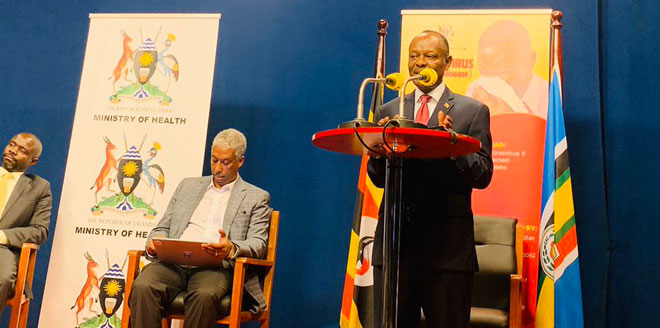The number of tests carried out so far are not enough to guarantee that Uganda has successfully contained Coronavirus Disease-COVID-19.
Uganda confirmed the first case of the virus on March 21. A month later, about 13,000 tests have been conducted by the Uganda Virus Research Institute and of these, 59, turned out positive for the virus.
But the Ministry of Health says that more tests need to be carried out, adding that the current number is not enough to say that the country is sure of its COVID-19 status. According to the health ministry, the majority of the people being tested were from quarantine centres followed by travellers who responded to a call by the ministry and a few members of the alert group.
The Director-General of Health Services Dr Henry Mwebesa said that Uganda needs to carry out more testing, even though he could not tag a targeted number. He, however, hastens to add that Uganda has managed to stop the spread of the disease into communities.
Dr Misaki Wayengera, a virologist and head of the COVID-19 Scientific Taskforce says that due to a lack of testing kits and equipment, Uganda can only test high-risk groups.
“In an ideal situation, all Ugandans would be tested before the lockdown is lifted or we would have enough capacity to test everyone before we lift it. However, with global test kit shortages, we cannot carry this out,” he said.
As of now, Uganda has received over 40,000 test kits from the World Health Organisation and the Jack Ma Foundation. However, Dr Wayengera says that more test kits are needed if the country is to have a more representative number of those tested.
Uganda is currently using the PCR tests at a cost of 240,500 Shillings per test. The government says other cheaper options like the antibodies test are being considered. Each will cost 92,500 Shillings.
With few available test kits and technologies in the country, Dr Mwebesa adds that the most important thing now is not the tested numbers but public sensitization. He says if all Ugandans know what the disease is and the DO’s and DONT’s associated with it, few cases will need testing.




